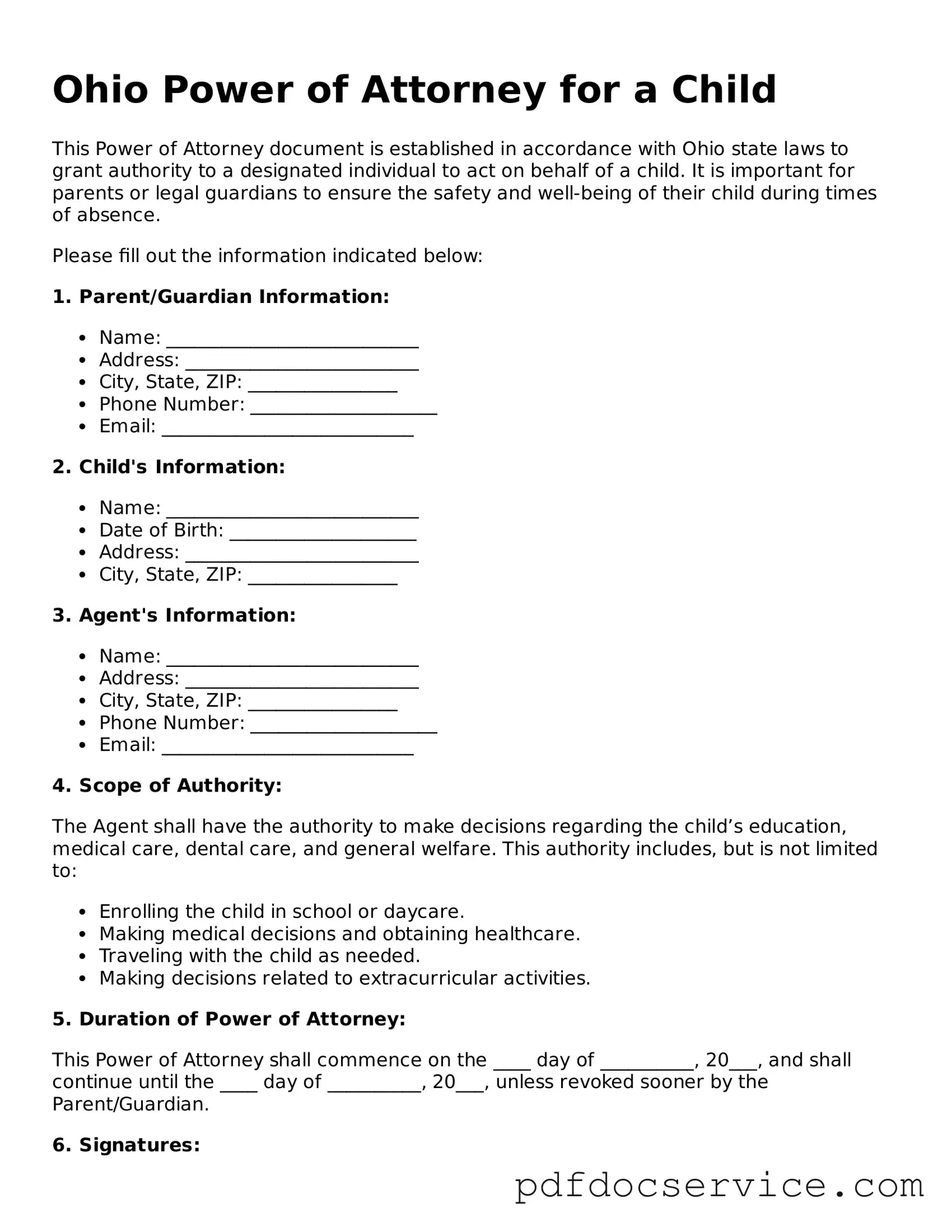What is a Power of Attorney for a Child in Ohio?
A Power of Attorney for a Child in Ohio is a legal document that allows a parent or legal guardian to grant another adult the authority to make decisions on behalf of their child. This can include decisions related to education, healthcare, and general welfare. It is particularly useful when a parent is unable to care for their child due to travel, illness, or other circumstances.
Any adult can be appointed as an agent, provided they are trustworthy and capable of making decisions in the best interest of the child. This could be a relative, family friend, or even a neighbor. However, it's essential to choose someone who understands the responsibilities involved in caring for a child.
What decisions can the agent make?
The agent can make a variety of decisions regarding the child's care, including:
-
Medical decisions, such as consent for treatment or emergency care.
-
Educational decisions, including enrollment in school and participation in extracurricular activities.
-
General welfare decisions, such as where the child will live and who they will spend time with.
How long does the Power of Attorney for a Child remain in effect?
The Power of Attorney for a Child typically remains in effect until the specified expiration date, if one is included in the document. If no expiration date is mentioned, it generally lasts until the child reaches the age of 18 or until the parent revokes it. Parents can also revoke the document at any time by providing written notice to the agent.
Do I need to have the document notarized?
Yes, in Ohio, the Power of Attorney for a Child must be notarized to be considered valid. This means that both the parent granting the authority and the agent must sign the document in the presence of a notary public. Notarization adds an extra layer of authenticity and helps prevent disputes regarding the document's validity.
Can I limit the authority granted to the agent?
Absolutely! The Power of Attorney can be tailored to fit specific needs. Parents can specify particular areas of authority, such as limiting the agent's ability to make medical decisions or restricting travel. Clear language in the document will help ensure that the agent understands their limitations.
What happens if the agent cannot fulfill their duties?
If the appointed agent is unable to fulfill their duties—due to illness, relocation, or any other reason—the parent can revoke the Power of Attorney and appoint a new agent. It’s important to have a backup plan in place, especially if the situation is likely to change.
Is a Power of Attorney for a Child the same as guardianship?
No, a Power of Attorney for a Child is not the same as guardianship. Guardianship is a more permanent arrangement that grants an adult legal authority over a child’s care and decisions, often requiring court approval. In contrast, a Power of Attorney is typically temporary and does not require court involvement.
Can the Power of Attorney for a Child be used for travel purposes?
Yes, the Power of Attorney for a Child can be particularly useful for travel. If a child is traveling with someone other than their parent or legal guardian, having this document can help ensure that the accompanying adult can make necessary decisions, such as medical care or emergency contacts, without delays.
The form for the Power of Attorney for a Child can typically be found on the official Ohio Secretary of State's website or through local county probate court offices. It’s important to ensure that you are using the most current version of the form to comply with Ohio law.

